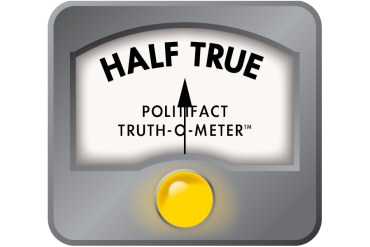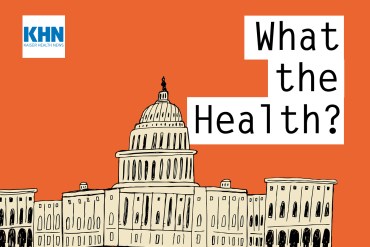Tampons, Pads And Politics Mesh In New Push For Access To Menstrual Supplies
As a national movement for better access to menstrual products gains steam, “period equity” activists in Colorado are finding the path to change isn’t straight. Although Denver last summer repealed sales taxes on menstrual products and the state now requires supplies to be provided in prisons, an effort to repeal the statewide sales tax on the products failed. So, activists assemble supply kits to donate to those who need them.
Coronavirus Is Keeping Me Home From Work. Will I Get Paid?
If you are sick from the coronavirus outbreak or sent home, your financial protections may vary depending on what state you live in.
¿Cómo evitar el coronavirus? Lecciones de personas cuyas vidas dependen de ello
Personas que recibieron trasplantes de órganos, que están en quimioterapia o viven con enfermedades crónicas, conocen bien las normas de higiene que ahora se promueven.
How To Avoid Coronavirus? Lessons From People Whose Lives Depend On It
As the new coronavirus continues its spread through the U.S., the general public can look for guidance from millions of Americans with weakened immune systems who long ago adopted the rules of infection control that officials tout to avoid contagion.
Heart Association Puts Halt To Bayer’s Giant Displays Of Baby Aspirin
After Kaiser Health News’ questions, the association tells the aspirin maker to take down display bins at Walmart pharmacies that gave a false impression that the over-the-counter drug is recommended for everyone to prevent heart attacks.
Dental Shock: Six Pulled Teeth And One Unexpected Bill
One woman’s experience with the high cost of dental care and confusing Medicare coverage offers a teachable moment for other consumers. Her small church took up a collection, but the surprise bill — four times what she expected to pay — was sent to collections.
As Youth Suicides Climb, Anguished Parents Begin To Speak Out
The suicide rate for children ages 10 to 14 almost tripled in a decade and is still rising. As parents grapple with loss, some turn to activism.
Preocupa aumento de médicos y enfermeras en cuarentena por exposición al coronavirus
¿Va a haber suficiente personal de salud para atender a los pacientes? El número de profesionales de salud en cuarentena por exposición al virus aumenta dramáticamente.
Surging Health Care Worker Quarantines Raise Concerns As Coronavirus Spreads
The number of U.S. health care workers who have been ordered to self-quarantine because of potential exposure to the new coronavirus is rising at an exponential pace. Many experts say something has to change.
Around The Corner: 3D Housing Designed For The Homeless And Needy Seniors
As homelessness among older adults increases, a movement is afoot to use a powerful 3D printer to construct affordable and durable housing.
Pence Leaves Out Key Details About Health Coverage Of Coronavirus Testing
The vice president’s remarks are more proof that health care is complicated.
En la línea de batalla, socorristas se preparan para el coronavirus, y para protegerse
En Seattle, al jueves 5 de marzo, 27 bomberos y tres policías estaban en cuarentena. Doce mostraban síntomas parecidos a la gripe. A otros dos los sacaron del aislamiento.
Con el coronavirus al acecho, grandes conferencias se debaten entre cancelar o no
Los virus tienden a infectar a más personas en eventos bajo techo como Comic Con, en el centro de convenciones de Seattle. Finalmente se canceló hasta el verano.
Preocupación por el coronavirus: cancelan eventos de donación de sangre
Los bancos necesitan tener una reserva de sangre de al menos dos o tres días, pero algunos tienen sólo para un día por las cancelaciones y la falta de donantes.
Despite A Birth By A Colorado Legislator, Paid Family Leave Bill Feels Labor Pains
A Colorado lawmaker giving birth near the start of the state’s four-month legislative session highlighted the lack of comprehensive paid family leave. Yet a bill to add a statewide system that once seemed a sure thing is getting bogged down.
With Coronavirus Lurking, Conferences Wrestle With Whether To Cancel
Concerns over Comic Con in Seattle mount as HIMSS and other huge conferences halt their plans.
Blood Drives — And Donors — Fall Off As Coronavirus Worries Grow
Cancellations and no-shows for blood drives in states where the virus is spreading — and in ones where it’s not — pose risks for the nation’s inventories.
On Front Lines, First Responders Brace For Coronavirus ― And Their Own Protection
Emergency medical technicians, ambulance crews and some firefighters are facing new threats from the coronavirus, which could put their normal contingency plans to the test.
KHN’s ‘What The Health?’: A ‘Super Tuesday’ For The Health Debate?
The wide field of Democrats vying to face President Donald Trump in the fall has been reduced to two major candidates, former Vice President Joe Biden and Vermont Sen. Bernie Sanders, each with a different prescription for the health system. Meanwhile, Congress and the Trump administration scramble to address the spread of the novel coronavirus. And the Supreme Court agrees to consider the latest case against the Affordable Care Act. Kimberly Leonard of the Washington Examiner, Tami Luhby of CNN and Emmarie Huetteman of Kaiser Health News join KHN’s Julie Rovner to discuss this and more.
As Coronavirus Cases Grow, So Does Scrutiny Of Nursing Home Infection Plans
Seema Verma, administrator for the Centers for Medicare & Medicaid Services, calls on state and federal health inspectors to focus on how facilities keep infections from spreading, especially in areas that have reported coronavirus cases.























